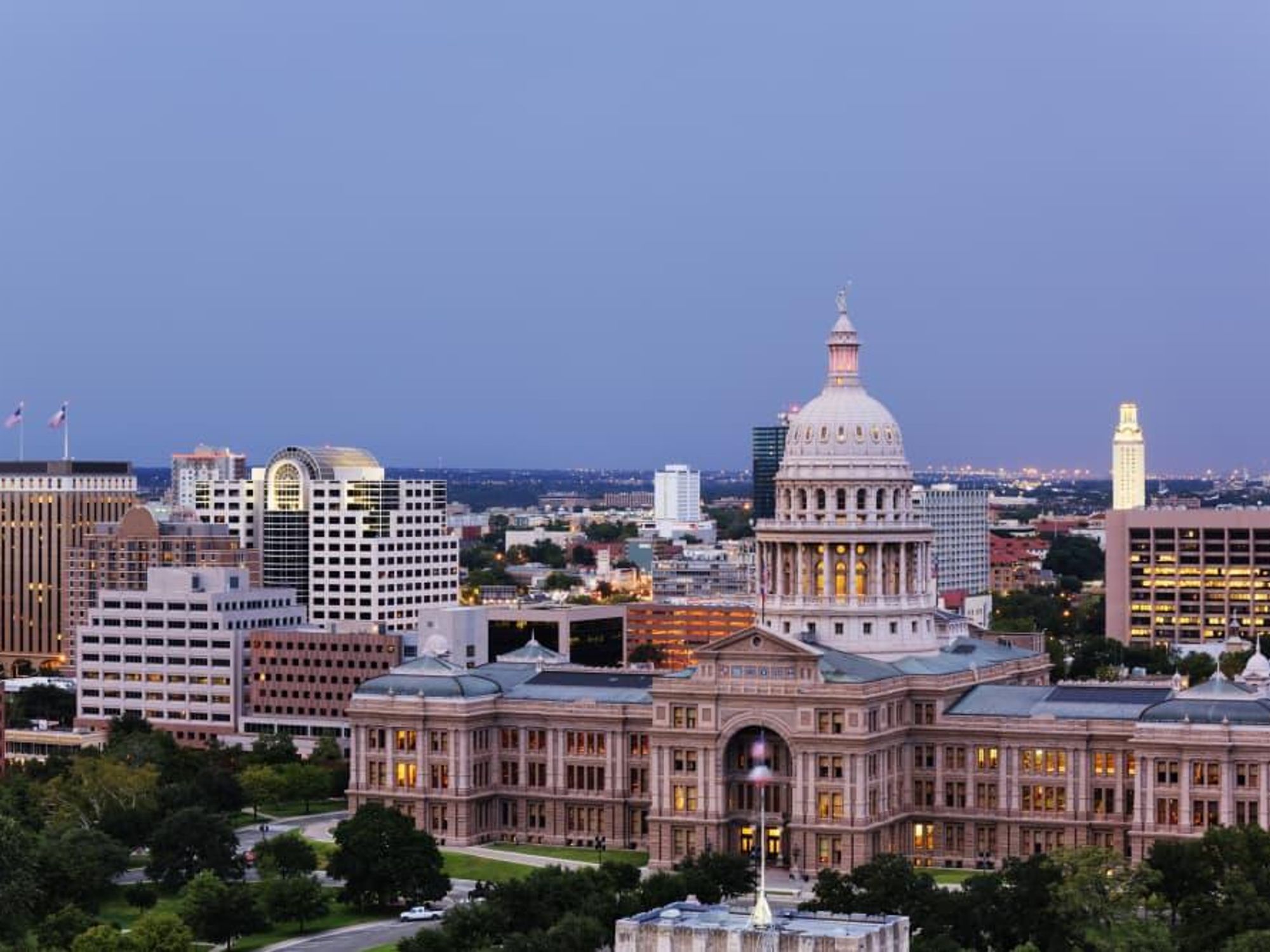Taking a fall
Austin toppled by New York for coveted title of world's top tech city

Austin has been knocked off its perch as the world’s top tech city in favor of New York City. However, a local economist says this isn’t cause for alarm.
The 2019 Tech Cities study from commercial real estate services company Savills places Austin in the No. 8 spot among the world’s 30 top cities for tech, with New York reigning as the new No. 1. In Savills’ previous two studies — in 2015 and 2017 — Austin ranked first.
Still, Austin is among just six U.S. cities in this year’s top 30 and is the only Texas city on the list.
To come up with its 2019 ranking, Savills considered more than 100 metrics in six categories, each of which is weighted to reflect its importance to the tech sector:
- Business environment
- Tech environment
- “City buzz” and wellness
- Talent pool
- Real estate expenses
- Mobility
Paul Tostevin, associate director of world research at Savills, explains that Austin fell from No. 1 to No. 8 for a couple of reasons. For one thing, Austin didn’t fare well in a category added this year to the Savills study — mobility. Among the top 30 cities, Austin came in at No. 22 for mobility.
Tostevin says three elements make up each city’s mobility ranking:
- Availability of, investment in, and density of shared transportation services, such as ride-hailing, bike-sharing and scooter-sharing options.
- Scale of and innovation in the public transit system.
- Quality of urban infrastructure, including walkability, traffic congestion, and air pollution.
“In a city where car use dominates, Austin’s public transit services aren’t as extensive as some of its rivals, and it is less walkable by comparison, too,” Tostevin tells CultureMap.
Another area where Austin falls short in the Savills study is venture capital (VC) investment. Tostevin notes that total VC investment fell 37 percent in Austin from 2016 to 2018, whereas it climbed 46 percent in New York during the same period.
Despite Austin's seven-notch slide in the ranking, “Austin’s underlying fundamentals remain sound, particularly in terms of demographics,” says Tostevin. “With a millennial-to-boomer ratio of 1.9, Austin is an exceptionally youthful city and set to remain so."
In addition, Austin’s population is forecast to rise 24 percent over the next decade, Tostevin points out, compared with 3 percent in New York and 8 percent in San Francisco, which appears at No. 2 in the latest Savills ranking.
Based on this assessment, Savills hails New York as “the world’s foremost center for tech, providing the business environment, talent pool, lifestyle, and transport links to make it the premier base for companies.”
San Francisco ranks No. 2, followed by London, Amsterdam, Boston, Singapore, Los Angeles, Austin, Stockholm, Copenhagen, Toronto, Seattle, Tokyo, Paris, and Shanghai.
Jon Roberts, principal and managing director of TIP Strategies, an Austin-based economic development consulting and advisory firm, says Austin’s move from No. 1 to No. 8 in the Savills ranking shouldn’t cause any anxiety. In fact, Austin should be pleased it remains in the company of so many prestigious metropolises, he says.
“This is quite extraordinary,” says Roberts, adding that many bigger U.S. cities, such as Chicago and Philadelphia, failed to make the cut.
Roberts maintains that Austin’s continued economic and population growth — including an ever-deepening pool of talent — should keep it in the Savills mix going forward, particularly in light of high-profile corporate expansions here by the likes of Apple and Oracle. As a matter of fact, he adds, investments here by Apple, Oracle, and other tech titans should help Austin move up in the next Savills ranking.
However, Roberts notes, Austin will continue to “score poorly” in Savills’ mobility category until major transportation improvements are made.
